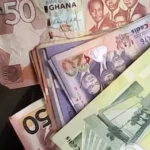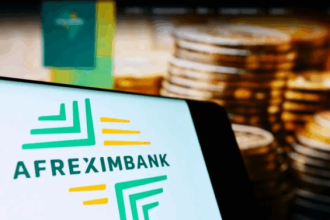Ghana faces a monumental challenge as it navigates the intricate process of negotiating debt restructuring with its commercial creditors.
The recent update from Finance Minister, Ken Ofori-Atta indicates that Ghana has pinpointed bonds amounting to $14.6 billion in the external commercial sector eligible for restructuring. Additionally, in the bilateral sphere, the government is targeting $5.4 billion, making a total of $20 billion in Ghana’s external debt earmarked for restructuring.
Ghana’s debt treatment team led by Ken Ofori-Atta and the governor of the Bank of Ghana, Dr. Ernest Addison has meticulously crafted a debt rework proposal aimed at freeing up a substantial sum of $10.5 billion between 2023 and 2026 to support the country’s balance of payment financing for the period under review.

However, this ambitious endeavour is likely to encounter resistance, particularly concerning the government’s pursuit of a 30 to 40 per cent reduction in principal debt and further forgiveness in interest payments.
The West African nation’s sovereign dollar bonds experienced a significant decline on Tuesday, following the government’s announcement of its request for a percentage write-off on the principal and interest of its Eurobonds. The reaction in the bonds market was swift, leading to some bonds reaching their lowest levels in three months. According to Tradeweb data, the 2061 issue plummeted by as much as 2.9 cents on the dollar, dropping to 38.9 cents. Although the bonds partially recovered, they remained down by 1.5 cents to 2.5 cents on the dollar.
Between 2023 and 2026, Ghana has been tasked by the IMF to obtain debt relief through external debt restructuring with an annual target of $3.5 billion. This is aimed at helping Ghana meet its Balance of Payments (BoP) financing, estimated at $15 billion for the next three years. However, without a successful external debt treatment, the government could encounter hurdles in terms of its debt servicing obligations over the next three years, potentially putting pressure on the country’s international reserves and its local currency, the cedi. The Black Star of Africa is expected to service maturing Eurobonds worth $1.9 billion (2023-2026) which is 60% of the total IMF bailout package. Projected interest payments on foreign loans crossed $3 billion this year.
In fact, Ghana’s journey towards external debt restructuring is riddled with challenges and complexities. The negotiation process involves delicate diplomacy and strategic financial planning. The government’s proposal to secure a significant reduction in principal and interest payments is essential to alleviate the country’s economic burden. However, this pursuit is met with scepticism and potential opposition from creditors. Balancing the necessity of debt relief with the concerns of creditors who may be wary of financial losses poses a significant hurdle.
















